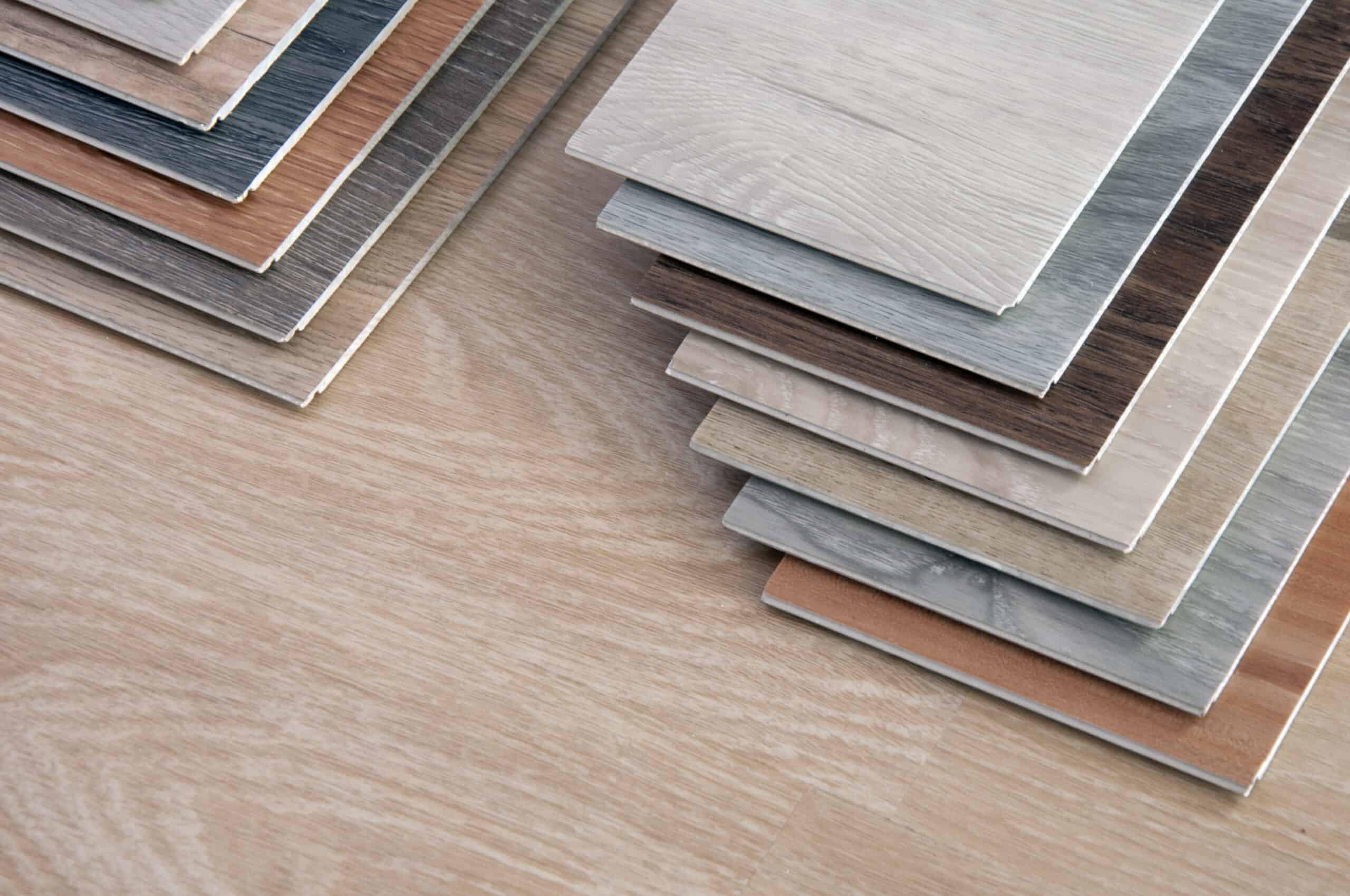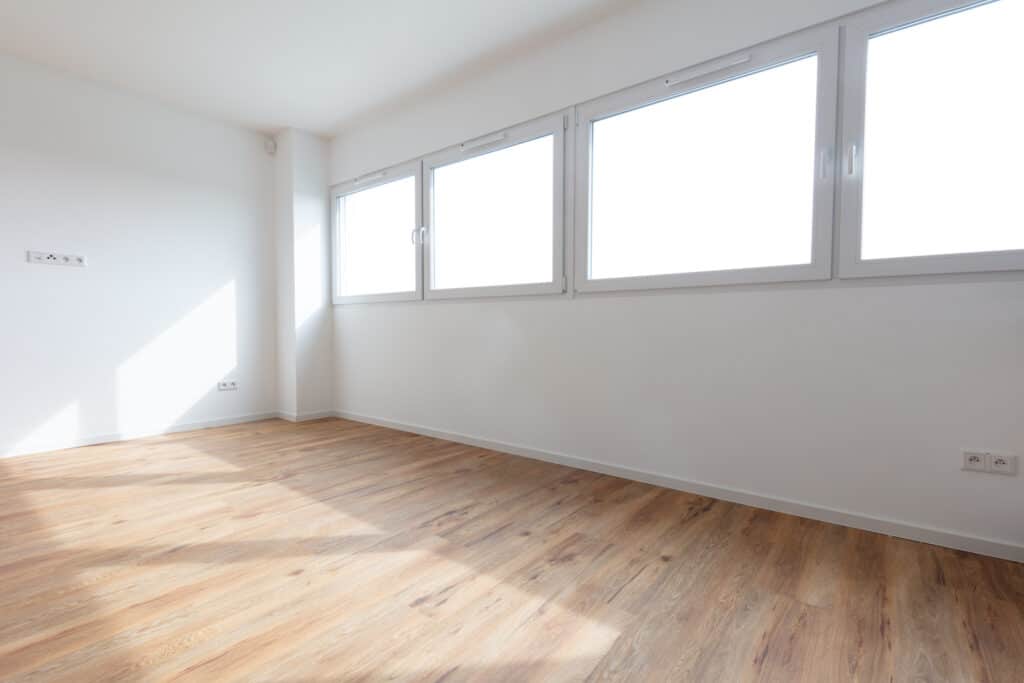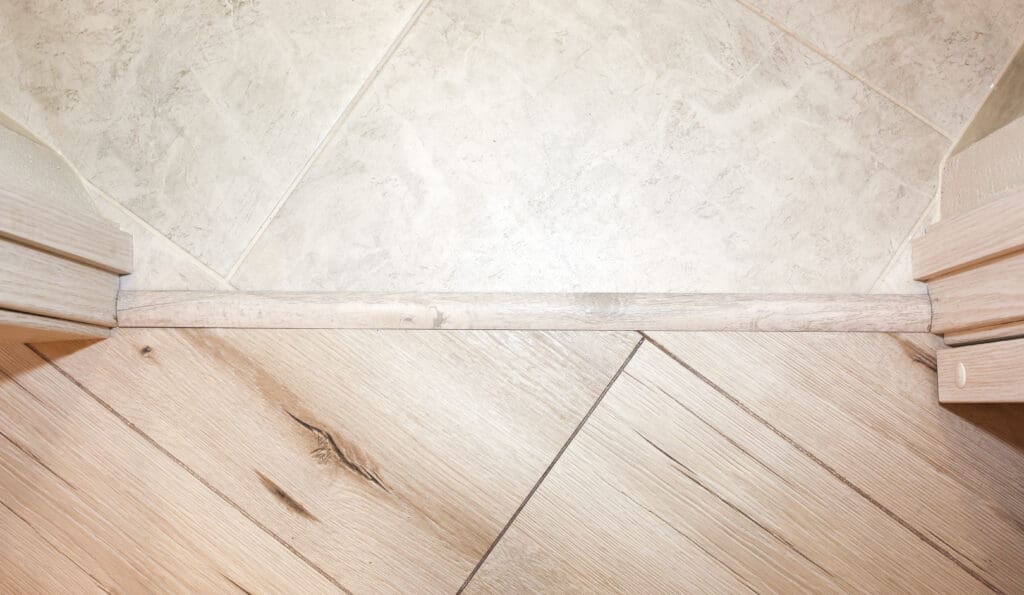- You are here:
- Home »
- Non Toxic Home Poducts »
- Is Vinyl Flooring Toxic?
Is Vinyl Flooring Toxic?
Vinyl flooring is a popular flooring choice because of its affordability and durability. However, some people are concerned that vinyl flooring may be toxic. In this article, we’ll look at the evidence for and against vinyl flooring toxicity, and you can decide for yourself if this is a concern worth considering when choosing flooring.
What is vinyl flooring and why is it a popular choice?
Vinyl flooring is a type of flooring made from PVC (polyvinyl chloride) plastic. It is a popular choice because it is affordable and durable. Vinyl flooring is available in a variety of colors and styles, and it can be installed in almost any room in your home.

Are vinyl floors toxic and what does the evidence say?
There are a few different elements that can make vinyl flooring toxic and unhealthy. The following compounds could affect the air quality at your home, which you must consider, especially if you have young children at home:
Phthalates in Vinyl Flooring
Phthalates are a type of plasticizer that is used to make vinyl flooring more flexible. In general, phthalates are considered toxic and have been linked to a variety of health problems in humans. Studies on pregnant women and children have found that exposure to phthalates can disrupt hormone levels, reproductive health and cause respiratory problems, including asthma.
There is some debate about the exact level of risk posed by exposure to phthalates, but it is generally agreed that they are not safe. The European Union has banned the use of certain types of phthalates in children’s products, and the United States has restricted their use in certain consumer products.
Though vinyl flooring has long been considered unsafe due to its high levels of toxic chemicals like phthalates and heavy metals, recent studies have shown that the situation is improving.
According to the latest Ecocenter report, the levels of these harmful substances in vinyl flooring sold by Home Depot, Lowe’s, and Lumber Liquidators, have decreased significantly since 2015. These vinyl floors’ top and backing layers now contain non-phthalate plasticizers, such as DOTP or benzoate esters, instead of their previous counterparts, making them a much safer option overall.
Vinyl Flooring and VOCs
When choosing vinyl flooring for your home or workplace, consider the potential effect of volatile organic compounds (VOCs) on indoor air quality. VOCs are emitted into the air as gasses from certain solids or liquids and can cause various short- and long-term health effects.
Vinyl is typically produced using a variety of chemical additives and solvents, which can sometimes release harmful VOCs into the air after installation. These chemicals can have a negative impact on air quality and pose a risk to those with respiratory conditions.
Fortunately, there are greener alternatives available. FloorScore-certified materials meet strict standards for indoor air quality and do not contain any harmful VOCs. Alternatively, Greenguard Gold certification is another option that takes into account the amount of VOCs emitted into the air.
By choosing floors with these certifications, you can help ensure that your indoor environment remains safe and healthy for you and your loved ones.
Toxic metals in vinyl flooring
There is no denying that toxic metals, in particular antimony, bromine, and lead, can result in serious health problems if they enter the human body. However, a recent study by the Ecocenter suggests that vinyl flooring may not be as dangerous as we once thought. The results of this study indicate that levels of antimony and other heavy metals are significantly lower in newer vinyl floorings than in older models.
This is great news for anyone who uses or prefers vinyl floors, as it shows that these materials are becoming much safer over time. By using advanced manufacturing techniques to remove harmful chemicals from their products, companies have helped to ensure both consumer safety and longevity for their flooring materials.
How to Find Non-Toxic Vinyl Flooring?
When looking for non-toxic and phthalate-free vinyl flooring, it is important to start by checking the label. This can help you determine whether the flooring has been certified as safe and whether any potentially toxic chemicals or materials are present in its composition.
You may also want to look for Floor Score and Greenguard GOLD certification logos on the packaging or website of your desired flooring manufacturer. You can find a comprehensive database of verified, certified flooring manufacturers at buildingclean.org, a great resource for anyone looking to reduce the environmental impact of their home improvement projects.
Some popular brands of non-toxic vinyl flooring include Shaw Floor, Home Legend, CoreLux, Fusion, Adore, and American Biltrite. Whatever your preferences and needs, there is sure to be a safe and sustainable option for you.

What are the best non toxic alternatives to vinyl flooring?
Although it’s possible to find non-toxic vinyl floor, you may want to consider other flooring options made of materials that are fully biodegradable and more environmentally friendly, such as bamboo or cork.
Bamboo and Cork Flooring
Bamboo floors and cork floors are both sustainable options that are gentle on the environment. They’re also much easier to clean than vinyl, and they won’t off-gas harmful chemicals into your home.
Hardwood Flooring
Another option is to install hardwood floors, which are durable and long-lasting. If you’re worried about the chemicals in hardwood floors, make sure that it’s finished with a zero-VOC sealant and the wood is FSC certified, meaning that it’s been sustainably sourced.
Bio-Based Floors
Bio-based tiles or linoleum are another great option for eco-friendly flooring. They’re made from sustainable waste resources and offer the same durability and easy maintenance as traditional tile floors. Additionally, they’re free from VOCs and toxic solvents and can be easily recycled at the end of their lifespan.
Natural Carpet and Rugs
You can also avoid toxic flooring altogether by choosing carpet and rugs made from natural fibers like wool or cotton. You can find carpets with Green Label Plus certificate, which means they meet strict standards for being low-emitting and free of harmful chemicals.
Read More: Can Carpet Be Toxic?
Ceramic Tiles
Ceramic Tiles are a classic flooring choice that offer timeless beauty and durability. They can last for decades with proper care, and they´re easy to clean and maintain. Plus, they don´t off-gas toxic chemicals into your home.
If you’re looking for a non-toxic flooring option that’s also stylish and affordable, vinyl may not be the best choice. However, there are plenty of other options to choose from that will give you the look you want without exposing you to harmful chemicals.

What to Do If Already Have Potentially Toxic Vinyl Flooring?
If you’ve already installed vinyl flooring that may contain phthalates and heavy metals, you can try to reduce the off-gassing of these chemicals by opening windows and doors to ventilate your home and by using an air purifier with a HEPA filter.
Remember to vacuum clean regularly, as this will help remove toxic particles that may have become airborne. If you’re concerned about the long-term effects of exposure to these chemicals, you can always consult with a certified indoor air quality specialist.
How Long Does Vinyl Flooring Off-Gasing Last?
The off-gassing of chemicals from vinyl flooring can last for several years, but it will eventually dissipate over time. The most intense period of off-gassing is usually within the first few months after installation.
However, if you open windows and doors to ventilate your home and use an air purifier with a HEPA filter, you can help reduce the amount of chemicals that are released into the air.
Rea More: 10 Tips for a Chemical-Free Home
Is vinyl more toxic than laminate?
Laminate flooring is made of multiple layers of synthetic materials, including a wear layer, a decorative layer, and a core layer. The core layer is typically made of fiberboard that contains formaldehyde, a known carcinogen.
Vinyl flooring is made of a single solid layer of PVC plastic. Although vinyl does not contain formaldehyde, it can contain other harmful chemicals, such as phthalates and heavy metals.
When choosing flooring, it’s important to consider the health hazards of all the materials involved, not just the main material.
What are the health risks of vinyl flooring?
The most significant health risk posed by vinyl flooring is the off-gassing of chemicals, which can cause irritation of the eyes, nose, and throat. Inhaling these chemicals can also cause respiratory problems.
Additionally, vinyl flooring can contain phthalates and heavy metals, which can be harmful with prolonged exposure. If you have young children or pets who are likely to put things in their mouths, vinyl flooring may not be the best choice for your home.
Conclusion: Can vinyl flooring be toxic?
In conclusion, many vinyl flooring manufacturers nowadays offer products that are low in phthalates and volatile organic compounds (VOCs) and are thus considered safe for indoor use. However, it is still important to check the product label or ask the manufacturer to be sure.
There have been some concerns about vinyl flooring safety in the past, but the quality has dramatically improved. You can also find vinyl flooring with FloorScore and Greenguard GOLD certificate that guarantees that the product is nontoxic.
About the Author Kamila Flieger
My name is Kamila, and I'm passionate about researching non-toxic, organic products for the home. I believe it's so important to create a safe and healthy environment for our families, and I enjoy helping others do the same.

